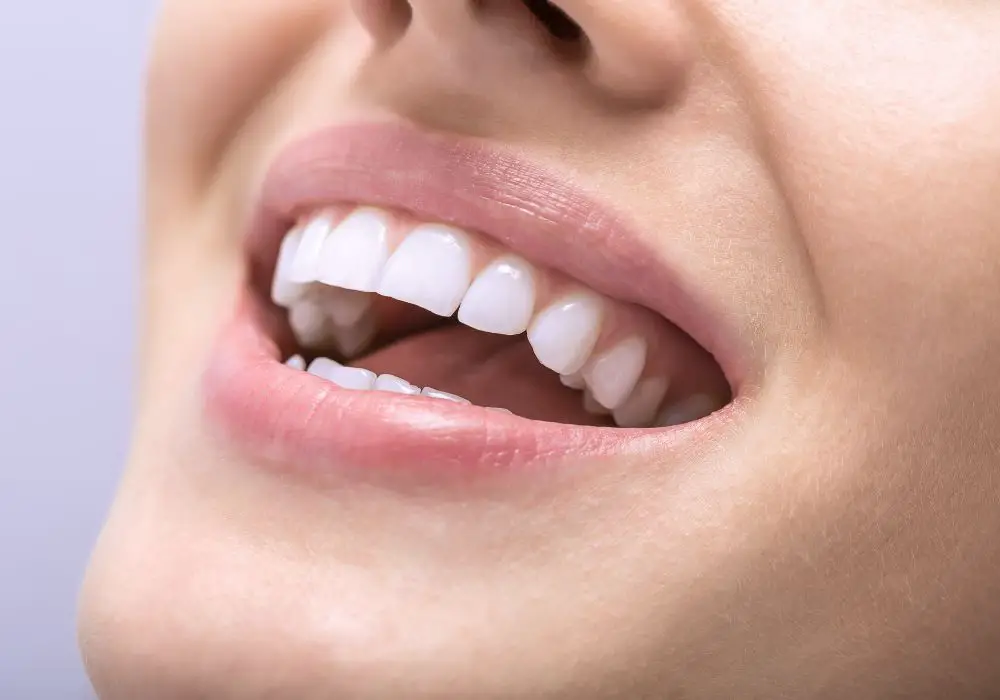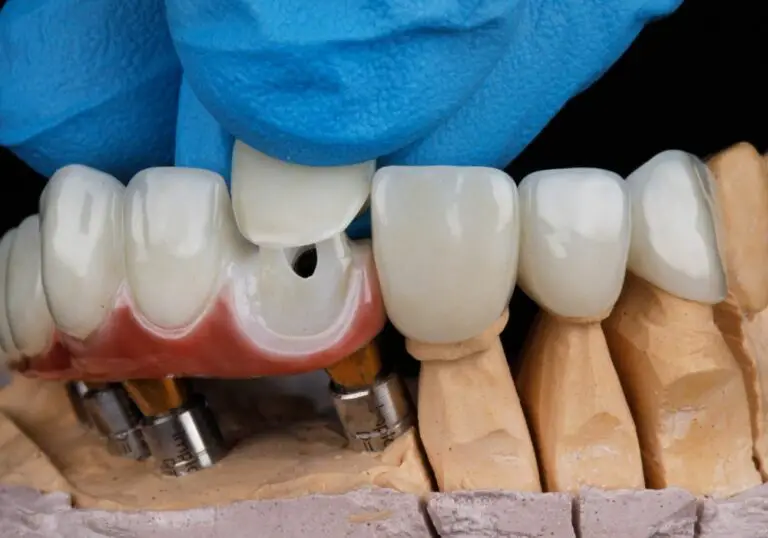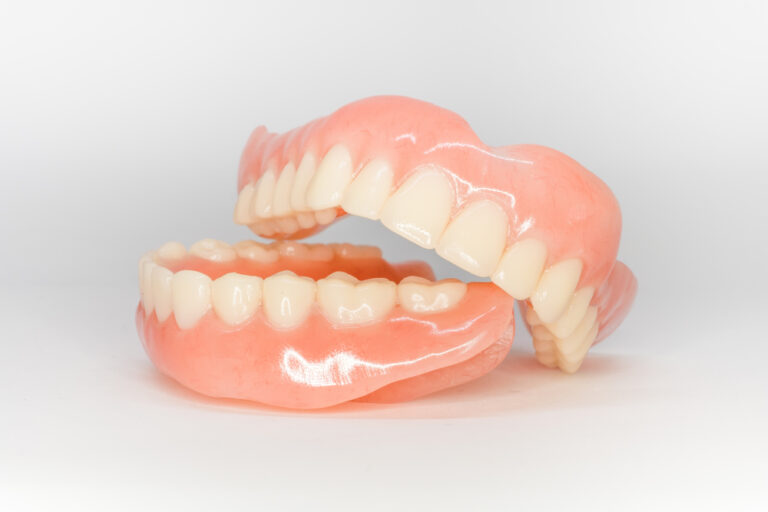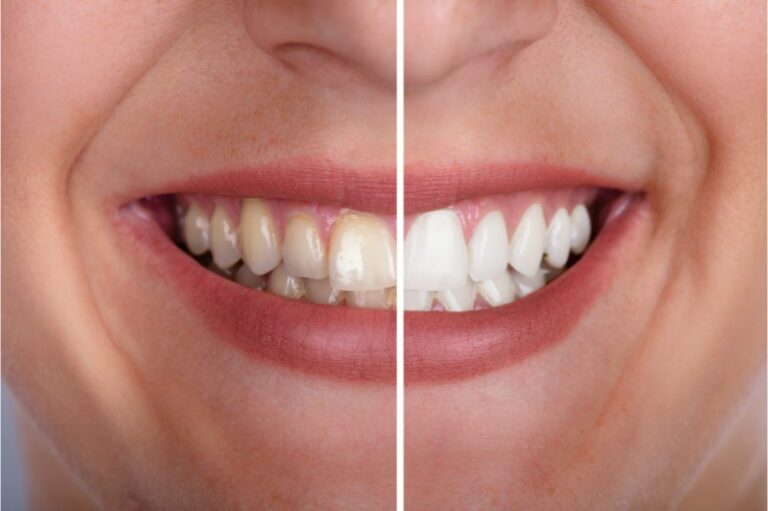Are you experiencing soreness or discomfort on your tongue due to sharp teeth? This can be a common issue, especially if you have dental appliances such as braces or dentures. Sharp teeth can cause accidental bites during chewing or even while sleeping, resulting in tongue trauma and sores. Fortunately, there are ways to protect your tongue from sharp teeth and prevent further discomfort.
One option to protect your tongue from sharp teeth is to use a custom-fit tray called a Tongue Guard. This hypoallergenic tray provides a barrier between your dental appliance and your tongue, preventing potential infections, discomfort, and sores. It is recommended to use the Tongue Guard as soon as your dental appliance is placed to avoid any tongue-related issues.
Another way to prevent accidental bites from sharp teeth is to visit your dentist regularly. Your dentist can identify any sharp or broken teeth or fillings that may be causing damage to your tongue and address the issue promptly. Additionally, your dentist can recommend mouth guards or other protective devices to prevent further tongue trauma.
Understanding the Problem
If you have sharp teeth, you may be causing injury or irritation to your tongue. This can be uncomfortable and even painful. Understanding the problem is the first step in finding a solution. In this section, we will discuss how to identify sharp teeth and the effects they can have on your tongue.
Identifying Sharp Teeth
Sharp teeth can be caused by a number of factors, including tooth decay, teeth grinding, and injury. You may notice that your teeth feel rough or jagged when you run your tongue over them. If you have sharp teeth, you may also experience pain or discomfort when you chew or speak.
To identify sharp teeth, you can perform a visual inspection of your mouth. Look for any teeth that appear chipped or broken, or that have rough edges. You can also use your tongue to feel for any roughness or sharpness on the surface of your teeth.
If you suspect that you have sharp teeth, it is important to see a dentist. They can examine your teeth and recommend treatment options to help smooth out any rough edges and prevent further damage.
Effects on the Tongue
Sharp teeth can cause a number of effects on the tongue, including cuts, sores, and irritation. When your tongue comes into contact with sharp teeth, it can become injured or irritated. This can lead to pain, discomfort, and difficulty speaking or eating.
If you have sharp teeth, you may notice that your tongue is more sensitive than usual. You may also experience bleeding or swelling in the affected area. Over time, repeated exposure to sharp teeth can lead to more serious problems, such as infection or damage to the tongue.
To protect your tongue from sharp teeth, it is important to seek treatment as soon as possible. Your dentist can recommend solutions to help smooth out any rough edges and prevent further damage to your tongue.
Preventive Measures

Protecting your tongue from sharp teeth is an important part of maintaining good oral health. Here are some preventive measures you can take to keep your tongue safe.
Regular Dental Checkups
One of the best ways to protect your tongue from sharp teeth is to schedule regular dental checkups. Your dentist will be able to identify any potential problems early on and recommend appropriate treatment. During your checkup, your dentist will examine your teeth, gums, and tongue to ensure that everything is healthy and functioning properly.
Proper Tooth Care
Proper tooth care is essential for protecting your tongue from sharp teeth. Here are some tips to help you take care of your teeth:
- Brush your teeth at least twice a day with a soft-bristled toothbrush and fluoride toothpaste.
- Floss your teeth at least once a day to remove plaque and food particles from between your teeth.
- Avoid chewing on hard objects such as ice, hard candy, or pencils, as this can damage your teeth and tongue.
- Wear a mouthguard if you play sports or grind your teeth at night.
- Avoid smoking or using tobacco products, as this can increase your risk of oral cancer and other oral health problems.
By following these preventive measures, you can protect your tongue from sharp teeth and maintain good oral health. Remember to schedule regular dental checkups and take care of your teeth to keep your tongue safe.
Immediate Solutions
If you have a sharp tooth that is causing irritation to your tongue, there are a few immediate solutions that you can try to alleviate the discomfort. Here are two options:
Use of Dental Wax
Dental wax is a soft, pliable material that can be molded to fit over the sharp edges of your teeth. It creates a barrier between your teeth and your tongue, preventing further irritation or injury. To use dental wax, follow these steps:
- Wash your hands thoroughly before handling the dental wax.
- Dry the affected tooth and surrounding area with a clean towel.
- Take a small amount of dental wax and roll it into a ball.
- Flatten the ball of wax and mold it to fit over the sharp edge of the tooth.
- Press the wax firmly onto the tooth, making sure it adheres well.
- Repeat as necessary throughout the day.
Orthodontic Treatment
If you have a sharp tooth that is causing repeated irritation to your tongue, it may be necessary to seek orthodontic treatment. This could involve braces, aligners, or other dental appliances that help to realign your teeth and prevent further injury to your tongue. Your orthodontist will be able to recommend the best course of treatment for your specific needs.
It is important to address any issues with sharp teeth as soon as possible to prevent further injury or discomfort. If you are experiencing ongoing pain or irritation, be sure to consult with your dentist or orthodontist for further evaluation and treatment options.
Long Term Solutions
If you have sharp teeth that are causing irritation to your tongue, there are a few long-term solutions that may help alleviate the issue.
Dental Surgery
One option is to undergo dental surgery to correct the issue. Depending on the severity of the problem, your dentist may recommend removing the sharp tooth or teeth altogether. Alternatively, they may suggest reshaping the teeth or using dental veneers to cover the sharp edges.
While dental surgery can be effective, it is also the most invasive and expensive option. Be sure to discuss the risks and benefits with your dentist before deciding to move forward with any procedure.
Teeth Filing
Another option is to have your teeth filed down to remove the sharp edges. This can be done by a dentist or orthodontist and involves using a special tool to gently grind away the rough spots on your teeth.
Teeth filing is a less invasive and less expensive option than dental surgery, but it may not be suitable for everyone. If you have particularly sensitive teeth or underlying dental issues, your dentist may advise against this procedure.
Regardless of which option you choose, it’s important to maintain good oral hygiene to prevent further irritation to your tongue. This includes brushing twice a day, flossing daily, and visiting your dentist regularly for checkups and cleanings.
By taking steps to address the issue of sharp teeth, you can protect your tongue and enjoy greater comfort and confidence in your smile.
Maintaining Oral Health

Taking care of your oral health is essential for preventing dental problems and protecting your tongue from sharp teeth. Here are some tips to help you maintain good oral health.
Healthy Eating Habits
Your diet plays a significant role in maintaining your oral health. Consuming a balanced diet rich in vitamins and minerals can help prevent tooth decay and gum disease. Here are some healthy eating habits to follow:
- Limit sugary and acidic foods and drinks, such as candy, soda, and fruit juice.
- Eat a variety of fruits and vegetables, which are high in fiber and help clean your teeth.
- Drink plenty of water, which helps wash away food particles and bacteria from your mouth.
Regular Oral Hygiene
Regular oral hygiene is crucial for maintaining good oral health. Here are some tips to follow:
- Brush your teeth twice a day with fluoride toothpaste and a soft-bristled toothbrush.
- Floss daily to remove plaque and food particles from between your teeth.
- Use mouthwash to kill bacteria and freshen your breath.
- Replace your toothbrush every three to four months or sooner if the bristles become frayed.
- Visit your dentist regularly for checkups and cleanings.
By following these healthy eating habits and regular oral hygiene practices, you can protect your tongue from sharp teeth and maintain good oral health.
Frequently Asked Questions
What are some ways to protect your tongue from sharp teeth?
There are several ways to protect your tongue from sharp teeth. One way is to wear a mouthguard, which can be custom-made by a dentist to fit your teeth and provide a barrier between your tongue and any sharp edges. Another way is to practice good oral hygiene, including brushing and flossing regularly, to prevent any buildup of plaque or tartar that can cause sharp edges on your teeth.
How can you reduce the pain caused by a sharp tooth on your tongue?
If you have a sharp tooth that is causing pain on your tongue, you can try rinsing your mouth with warm salt water to help reduce inflammation. Over-the-counter pain relievers such as ibuprofen or acetaminophen can also help alleviate pain. If the pain persists, it is important to see a dentist to address the underlying issue.
Is dental wax an effective solution for a sharp tooth?
Dental wax can be used as a temporary solution to cover a sharp tooth and prevent it from cutting your tongue. However, it is important to note that dental wax is not a long-term solution and should only be used until you can see a dentist to address the underlying issue.
Can a sharp tooth be filed down at home?
Filing down a sharp tooth at home is not recommended, as it can cause further damage to the tooth and potentially lead to infection. It is important to see a dentist to address any issues with sharp teeth.
Will a sharp tooth wear down on its own over time?
A sharp tooth may wear down over time, but this process can take a long time and may not fully resolve the issue. It is important to see a dentist to address any issues with sharp teeth.
Is it possible to prevent a sharp tooth from cutting your tongue?
Practicing good oral hygiene and seeing a dentist regularly can help prevent sharp teeth from forming. If you have a sharp tooth, it is important to see a dentist to address the underlying issue and prevent further damage.






